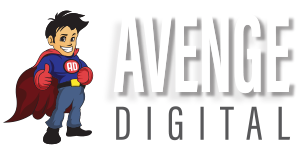
As someone who has seen the 'tech boom' here in Seattle first hand, I have seen the growth of what's been coined "born digital" companies. Among the new generation of weapons insurers intend to use to compete with these "born-digital” companies are chat windows, faster policy statements, intuitive agent portals, e-signatures, and robotic technologies. It's no wonder many agents struggle to keep up.
Something I've noticed in my 5 years of working with insurance agents nationally is that ever present growing technologies are making the jobs of agents easier.... if you let them. Couple that with the growing millenial population keen to shopping purely online that is coming to age, you can see why technological shifts and adaptation are crutial to your business suceess.
In short, millennials have ratcheted up the customer service expectations quotient in every industry. Companies that do not rise to the challenge are going to be left behind, insurance executives and industry consultants all agree.
As an example, life insurance, with its slow sales cycles, long tail risks and decades-long time horizons, is going to have to change to remain relevant, a top insurance executive said.
Like it or not, “born legacy” insurer brands like Lincoln Financial, Prudential Financial and MetLife are no longer competing against one another, but against brands built straight out of a digital market. Personally, I have worked with multiple online agencies whose sole focus is through phone sales and online processing and underwriting.
Born digital brands, who know nothing of bricks-and-mortar infrastructures or layers of distributors, have perfected the art of connecting with consumers through digital channels and companies everywhere feel obliged to follow suit.
We live in the "Amazon world" where online purchases now superceed in person sales. I can't think of the last time, if ever, I heard one of my peers mention they were going to their insurance agents' office. It just doesn't work that way anymore, and many brick-and-mortar agents will get lost in the tide if they can't keep up with digital trends.
Accelerating Time Scales
According to Insurance News Net, "One need look no further than the Thanksgiving weekend for how fast new digital companies fulfill orders and close transactions.
Black Friday online sales reportedly totaled about $5.2 billion and billions more in sales are expected this week during 2017’s Cyber Week when people traditionally buy online." As a side note to this, rememer when it used to be "Cyber Monday'? Now many online retailers are touting the entire week after Thanksgiving as "Cyber Week" to capatalize on these online-only shoppers.
As a company that is born-digital, we've seen how time scales are measured in seconds, and often in milliseconds. Both insurers and agents are aware of the importance of reacting to and serving the needs of customers at the speed of light.
Digital marketing and customer engagement were the most commonly demanded capabilities among insurers, according to a survey published last month by Novarica, an insurance IT consultancy.
Prevailing in digital marketing and customer engagement is considered even more important than overcoming speed-to-market or product-change challenges, wrote Novarica CEO Matthew Josefowicz.
Improvements – But is it Enough?
Insurers have reported improvements in the cycle time it takes companies to issue and bind a long-term contract. For underwriters of life insurance policies with face amounts of $400,000 or more, the average cycle time has decreased from 52 days to 44 days over the past nine years, according to the consulting firm Celent.
For policies with face amounts of $400,000 or less, average cycles times have gone from 42 days to 33 days over the same period, the report found.
But that is hardly the kind of improvement that will impress millennials. If the born-digital companies can't deliver insurance and annuity contracts a lot quicker than that, 30-somethings will likely refer friends and family to an insurer named Amazon.
How to Transition
Probably the biggest question I've heard from agents who have been in the industry for 20+ years is always the same thing: How do I transition from brick-and-mortar to incorporate more digital strategies?
The answer is simple! By implementing online CRMs, using Shared Docs in the office, as well as digital marketing techniques and online quoting tools, many brick-and-mortar agents are seeing their agencies grow faster, and with more reach, than previously thought.
Think about it this way.... if your insurance license is for the entire state, why don't you market to them? Because your agency wants you to be a "local agent"? But as an independent business owner, why would you want to limit yourself to such a small territory? Based off of research in this field, we've seen that consumers are more concerned with the customer experience and finding a trusted advisor more than someone local.
With all the tools available to agents, you can transform your office into a well-oiled digital machine!
Have you considered breaking into the online space? If so, we have a team of people ready to help assess your current business structure, and provide insights and options on how to put your team on the fast track to success. What's worked for you? How have you made the switch?






